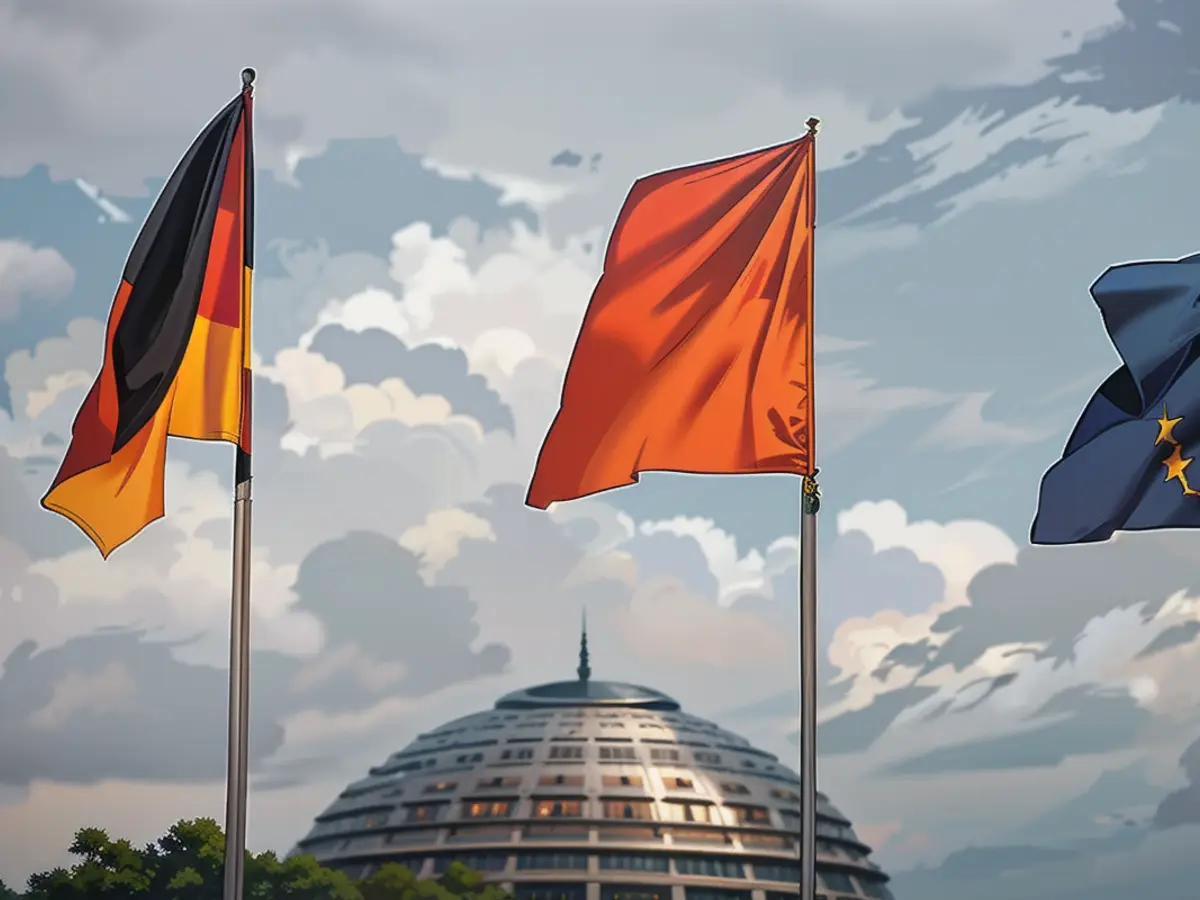EU Shouldn't Turn into a "Buffer" - BDI
In response to the rising US tariffs enforced on Chinese electric cars and other products, the Federation of German Industries (BDI) has raised concerns over the potential effects on Germany's domestic market. On Wednesday, Wolfgang Niedermark from the BDI's Executive Board expressed caution to avoid transforming the EU internal market into a buffer for Chinese excess production, barred by the US market. "This scenario has played out in the international steel market in the past few years," he stated.
China should be perceived as a government-controlled economy, asserted Niedermark, who furthermore highlighted the EU's existing defensive mechanisms against third-country goods sold at distorted prices. "If proof of dumping or subsidization is established under these regulations, they should be implemented without exception."
In the meantime, a simulation analysis conducted by the Kiel Institute for the World Economy (IfW) suggests that the imposed US tariffs will have a negligible impact on EU-China trade. The IfW also revealed that only 12,000 electric vehicles are imported by the US from China each year, making a deviation to other markets difficult to detect.
Julian Hinz, a trade researcher at the IfW, expressed anxiety regarding the potential reactions and retaliations that may ensue if these tariffs spur a detrimental chain of events for Germany and the EU. Hence, they are likely to target Canada and Mexico as alternative export destinations for Chinese goods.
Read also:
- Year of climate records: extreme is the new normal
- Precautionary arrests show Islamist terror threat
- UN vote urges Israel to ceasefire
- SPD rules out budget resolution before the end of the year
The BDI warns against turning the EU into a buffer for Chinese electric car production, displaced by the US tariff increase. Under EU regulations, dumping or subsidization of third-country goods should be addressed and penalized accordingly.
Source: www.ntv.de








